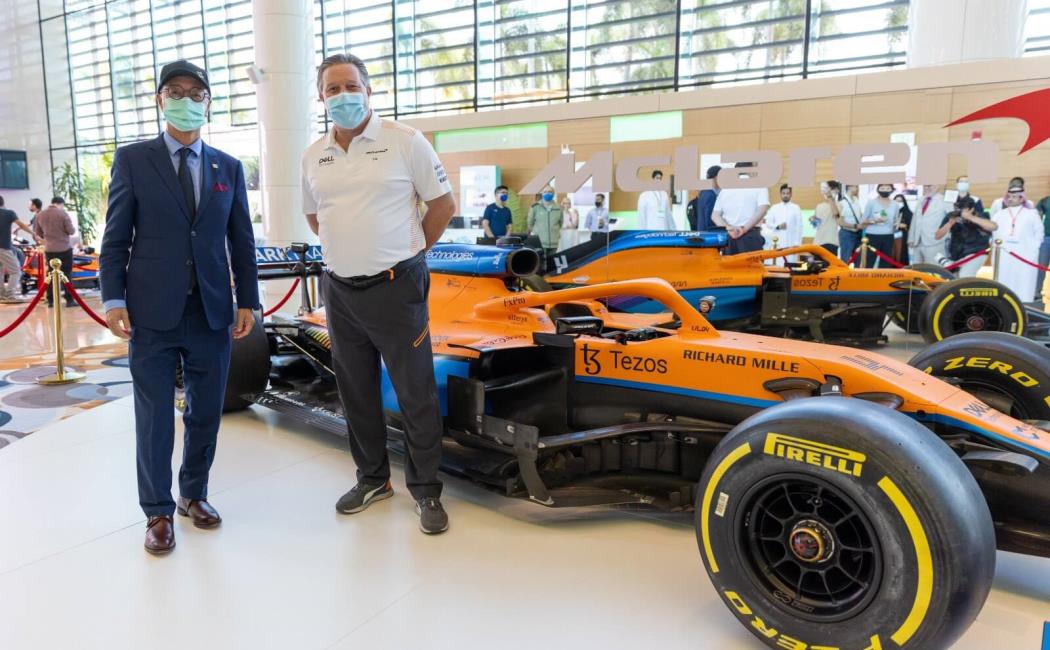
06 December, 2021
Before Formula 1 hit Jeddah for the first time, the McLaren F1 team visited KAUST in appreciation of a successful partnership in research and development with The University over the past three years.
“We’re delighted to be collaborating with our long-term partner, KAUST at their 2021 Research Open Week ahead of the inaugural Saudi Arabian Grand Prix,” said Zak Brown, CEO, McLaren Racing. “Promoting STEM education as an accessible and inspiring vocation is a key focus in McLaren Racing’s overall sustainability strategy. Being a partner during KAUST’s 2021 Research Open Week gives our team an exciting opportunity to connect our own STEM ambassadors with KAUST’s staff and students to demonstrate the great opportunities our partnership can create, and the importance of progression in our sustainability strategy for our team and our sport.”
The inaugural Research Open Week showcases the Science and Engineering Excellence at KAUST. It aims to celebrate and share the work KAUST researchers do with our valued partners through presentations, demonstrations, and discussions.
Dan McEwan, Head of Partnerships at McLaren Racing, joined KAUST professors Mani Sarathy and Matteo Parsani for a KAUST Sci-Café panel discussion on Fostering a Sustainable Future for F1.
Further, a round table discussion between McLaren STEM ambassadors and KAUST students focused on how to involve more young people in STEM careers.
“KAUST’s engagement with the McLaren Racing team is a shining example of partnership at its best,” said KAUST Vice President for Research and Distinguished Professor of Materials Physics and Device Engineering Professor Donal Bradley. “We have also been working with the wider McLaren group on a range of other topics including personal protective equipment and emergency ventilators, sustainability initiatives and promoting STEM education through the extreme engineering challenges that F1 provides.”
McLaren Formula 1 driver Lando Norris competed against the fastest KAUST community member on McLaren simulators before discussing his career in an open session.
Established in 2018, the partnership aims to advance research in the areas of computational fluid dynamics (CFD), machine learning, fuels and lubricants, as well as advanced mathematics, sensors and electronics.
Source: KAUST News